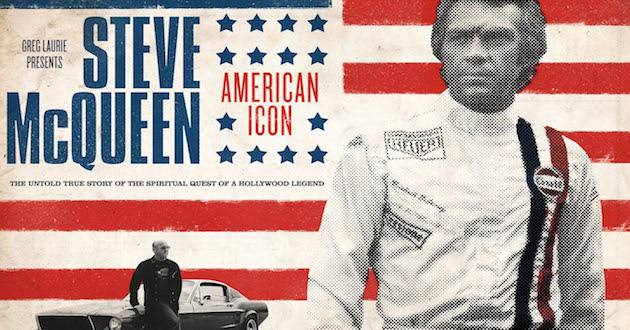Iconic Hollywood actor Steve McQueen, who became a Christian late in life, will be the subject of a new film based on Marshall Terrill’s 2010 biography Steve McQueen: The Life and Legend of a Hollywood Icon.
The Hollywood Reporter reports that rights have been acquired for an adaptation of the book which Terrill spent 10 years researching and which “follows the actor’s life from humble beginnings in the Midwest to the pinnacle of Hollywood and ultimately to his untimely death at the age of 50 in Mexico.”
It’s too early to tell, but the new biopic may not entirely represent the development McQueen’s faith.
We know him as the “king of cool,” the highest-paid actor in the world, and the idol of moviegoers from coast to coast. Some even called him the next John Wayne.
But for McQueen – who starred in more than 30 films and 20 TV series during the 1950s, ‘60s and ‘70s – it wasn’t enough. Fame didn’t satisfy him. Neither did women, motorcycles or cars.
In fact, McQueen didn’t find inner peace until the final months of his life, when he accepted Christ and had plans to tell the world about his new-found faith. But that public testimony never came, as McQueen died in 1980 at the age 50 in Mexico from a rare cancer, having told only a handful of people how Jesus had saved him.
A documentary now available on some streaming platforms, for purchase or at your local library, has changed how we view McQueen. Released in 2017, Steve McQueen: American Icon, follows the actor’s journey from troubled youth to Hollywood stardom and then tells us the rest of the story – that is, how McQueen found Christ. It is hosted by Greg Laurie, a lifelong McQueen fan who serves as the senior pastor of Harvest Christian Fellowship in Riverside, Calif. Jon and Andrew Erwin (Woodlawn), along with Ben Smallbone (Priceless), directed it.
When it released, reviewers called it one of the most powerful and inspiring documentaries ever seen on the big screen. It’s a popular film for showing at churches these days, with a huge following among men’s groups.
McQueen’s pastor agrees: “There was a peace. There was a calmness” in McQueen.
Laurie also interviews McQueen’s wife (model Barbara Minty McQueen), actor/director Mel Gibson, stuntman Stan Barrett, and even the pilot who taught McQueen how to fly.
McQueen had a difficult childhood. Both parents were alcoholics, and he bounced back and forth between family members before he was sent to a reform school for boys with behavioral problems. He took an interest in acting partially because of his desire to meet women. Acting was therapeutic, providing an escape from his past and allowing him to pretend to be someone else.
His first hit was the television show Wanted: Dead or Alive (1958-61), and his first big-time movie The Blob (1958). He earned his reputation as a tough guy with a series of western and action films, including The Magnificent Seven (1960), The Great Escape (1963) and Bullitt (1968). His final hit was The Towering Inferno, the top grossing film of 1974.
McQueen seemingly had everything. He was the highest-paid actor in the world and even dated a girl who – get this — dumped Elvis to date him. Yet toward the end of his life, McQueen dropped out of Hollywood and turned down major acting roles, sensing something was missing from his life. He finally found it thanks to a series of providential encounters: one with a Christian on the set of a film (who gave him a copy of C.S. Lewis’ “Mere Christianity”) and the other with a pilot who was teaching him how to fly. McQueen was attracted to the inner peace he saw in Christians.
During the final hours of his life when he was awaiting a risky surgery he once again met with Billy Graham – the man who gave McQueen his personal Bible.
Steve McQueen: American Icon is Ecclesiastes on the big and small screen: A man obtains fame and fortune and then reaches the end of his life and proclaims: All is vanity.
McQueen’s discovery is one that all of us need to hear.
Steve McQueen: American Icon is unrated. It contains no language or sexuality, and only minor violence through McQueen’s movie clips.
–Michael Foust
